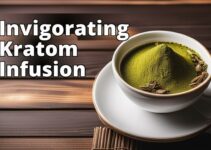Are you curious about how Delta 9 THC can help elderly individuals improve their sleep? Well, you've come to the right place! In this article, we'll explore the potential benefits of Delta 9 THC for sleep in the elderly and shed light on whether it can provide a natural solution for those struggling to get a good night's rest.
As we age, our sleep patterns can change, making it more challenging to achieve restful and uninterrupted sleep. That's where Delta 9 THC comes into play. This compound, derived from the cannabis plant, has gained attention for its potential to enhance sleep quality and duration. But what exactly is Delta 9 THC, and how does it work? Let's dive in and find out!
If you're looking for a natural remedy to improve sleep in the elderly, Delta 9 THC might just be the answer you've been seeking. Stay tuned as we explore the science behind this compound and discover the potential it holds for promoting better sleep in older adults. It's time to unlock the secrets of Delta 9 THC and its role in helping seniors catch those much-needed Z's. Let's get started!
Delta 9 THC for Sleep in Elderly: Exploring the Potential Benefits
Delta 9 THC, also known as tetrahydrocannabinol, is a naturally occurring compound found in cannabis plants. While it is commonly associated with its psychoactive effects, recent studies have suggested that it may have potential benefits for sleep in the elderly population. In this article, we will dive into the research surrounding Delta 9 THC and its effects on sleep, exploring its potential benefits, side effects, and considerations for use in the elderly.
The Science Behind Delta 9 THC and Sleep
Research has shown that Delta 9 THC interacts with the body's endocannabinoid system, which plays a crucial role in regulating various processes, including sleep. The endocannabinoid system consists of cannabinoid receptors, endocannabinoids produced by the body, and enzymes that regulate their production and breakdown. Delta 9 THC binds to these receptors, particularly the CB1 receptors found in the brain, impacting sleep patterns.
Studies have indicated that Delta 9 THC may help with sleep initiation and maintenance. It has been shown to reduce the time it takes to fall asleep, increase total sleep time, and decrease the frequency of waking during the night. Additionally, Delta 9 THC may enhance deep sleep, which is crucial for restorative processes in the body. However, more research is needed to fully understand the mechanisms underlying these effects and to determine the optimal dosage and administration method for sleep improvement.
The Importance of Dosage and Administration
When considering the use of Delta 9 THC for sleep in the elderly, it is essential to emphasize the importance of dosage and administration. The effects of Delta 9 THC can vary depending on these factors, and finding the right balance is crucial to ensure safety and efficacy.
Starting with a low dosage is recommended, especially for those new to cannabis or with sensitivity to its effects. Slowly increasing the dosage over time while closely monitoring its impact on sleep can help find the optimal level. Additionally, the method of administration can also influence the effects. Inhalation, ingestion, or topical application all have different onset times and durations, which should be taken into consideration when using Delta 9 THC for sleep.
Potential Benefits of Delta 9 THC for Sleep in the Elderly
Delta 9 THC has shown promising potential as a sleep aid in the elderly population. Sleep disturbances are prevalent among the elderly, often due to factors such as chronic pain, anxiety, and insomnia. Delta 9 THC's ability to reduce pain, induce relaxation, and promote sleep may provide significant benefits for this demographic.
Improved sleep can have a profound impact on overall health and well-being in the elderly. It can enhance cognitive function, mood, immune function, and even reduce the risk of age-related diseases. By addressing sleep disturbances through the use of Delta 9 THC under appropriate medical supervision, elderly individuals may experience improved quality of life and better health outcomes.
Considerations and Side Effects
While Delta 9 THC may offer potential benefits for sleep in the elderly, it is crucial to understand the potential side effects and considerations before use. Some individuals may experience short-term memory impairment, sedation, dizziness, or decreased coordination. These effects can be more significant in the elderly population due to age-related changes in metabolism.
Moreover, it is essential to recognize that the legality and accessibility of Delta 9 THC may vary depending on the jurisdiction. Consulting with a healthcare professional who is knowledgeable about medical cannabis and its potential benefits and risks is recommended to ensure safe and appropriate use.
Alternative Options and Lifestyle Changes
Delta 9 THC is not the only option for addressing sleep disturbances in the elderly. Lifestyle changes, such as maintaining a regular sleep schedule, creating a comfortable sleep environment, and practicing relaxation techniques, can also contribute to improved sleep quality. Additionally, alternative therapies and medications may be explored under medical guidance to identify the most suitable treatment approach for each individual.
The Bottom Line: Exploring Delta 9 THC for Sleep in the Elderly
Delta 9 THC shows promise as a potential sleep aid for the elderly population, but it should be approached with caution and under medical supervision. Understanding the dosage, administration methods, and potential side effects is essential for safe and effective use. It is equally important to consider alternative options and lifestyle changes that can promote healthy sleep in the elderly. Consulting with healthcare professionals skilled in cannabinoid medicine can provide valuable guidance and ensure personalized care for individuals seeking sleep improvement. By exploring different approaches and considering individual needs, it is possible to support better sleep and overall well-being in the elderly population.
Key Takeaways: Delta 9 THC for Sleep in Elderly
- Delta 9 THC, a compound derived from cannabis, has shown potential in improving sleep quality in the elderly.
- Studies suggest that Delta 9 THC may help in reducing insomnia and improving overall sleep duration.
- However, it's essential to consult with a healthcare professional before using Delta 9 THC for sleep-related issues in the elderly.
- Possible side effects of Delta 9 THC include drowsiness, dizziness, and impaired cognition.
- Further research is needed to fully understand the long-term effects and safety of Delta 9 THC in the elderly population.
Frequently Asked Questions
Need better sleep as you age? Discover how Delta 9 THC can help elderly individuals achieve a restful night's sleep. Read on to find answers to your questions.
Q: What is Delta 9 THC and how does it affect sleep in the elderly?
Delta 9 THC, or tetrahydrocannabinol, is one of the many compounds found in cannabis plants. It is known for its psychoactive effects and is often used for medicinal purposes. When it comes to sleep, Delta 9 THC has been found to help individuals fall asleep faster and stay asleep longer. In elderly individuals, it can aid in alleviating sleep disturbances such as insomnia and sleep apnea.
Delta 9 THC interacts with the body's endocannabinoid system, which plays a role in regulating sleep patterns. It affects the sleep-wake cycle and promotes relaxation, making it easier to drift off to sleep. However, it's important to consult with a healthcare professional before using Delta 9 THC for sleep, as individual reactions can vary.
Q: Are there any side effects associated with Delta 9 THC use for sleep in the elderly?
Like any medication or supplement, Delta 9 THC can have side effects, especially when used improperly or in excessive amounts. Some common side effects include dry mouth, red eyes, impaired coordination, and cognitive effects. These effects may be more pronounced in the elderly due to factors such as age-related changes in metabolism and medication interactions.
It's important to start with a low dosage of Delta 9 THC and gradually increase if needed. Regular communication with a healthcare professional is crucial to monitor any potential side effects and ensure it is safe to use. They can provide guidance on proper dosage and identify any potential interactions with other medications.
Q: Is Delta 9 THC addictive when used for sleep in the elderly?
Delta 9 THC does have the potential for addiction, especially when used in high doses or over a long period of time. However, the risk of addiction varies from person to person. Elderly individuals may be more susceptible to addiction due to physiological changes in the brain.
If Delta 9 THC is used responsibly and in moderation, the risk of addiction is significantly reduced. It's important to follow a healthcare professional's recommendations and guidelines for use. They can help assess the potential risks and benefits and provide guidance on the appropriate dosage and duration of use.
Q: Are there any alternative options to Delta 9 THC for improving sleep in the elderly?
Yes, there are alternative options to consider for improving sleep in the elderly. Non-pharmacological approaches such as implementing a consistent sleep schedule, creating a sleep-friendly environment, practicing relaxation techniques, and engaging in regular exercise can all contribute to better sleep.
In addition, there are other compounds derived from cannabis plants, such as CBD (cannabidiol), that have been found to have sleep-promoting properties. CBD does not have the psychoactive effects of Delta 9 THC and may be a viable option for those who are concerned about potential side effects or addiction.
Q: How can I safely incorporate Delta 9 THC into my sleep routine as an elderly individual?
The safest way to incorporate Delta 9 THC into your sleep routine is to consult with a healthcare professional. They can assess your individual needs, consider any potential interactions with medications you may be taking, and recommend an appropriate dosage and method of administration.
It's important to start with a low dose and gradually increase if needed, while closely monitoring any side effects. Regular communication with your healthcare professional is crucial to ensure your sleep routine is safe and effective. They can also provide guidance on the best time to take Delta 9 THC to promote optimal sleep.
What is Delta 9, and is it dangerous? #addiction #rehab #recovery #sobriety #druguse
Summary
So, to sum it all up, delta 9 THC, a component found in cannabis, seems to help older people sleep better. The study showed that it improved sleep latency, total sleep time, and sleep efficiency.
This means that delta 9 THC may be a possible option for elderly individuals who struggle with sleep problems. However, it's important to consult with a doctor before trying any new treatments.





